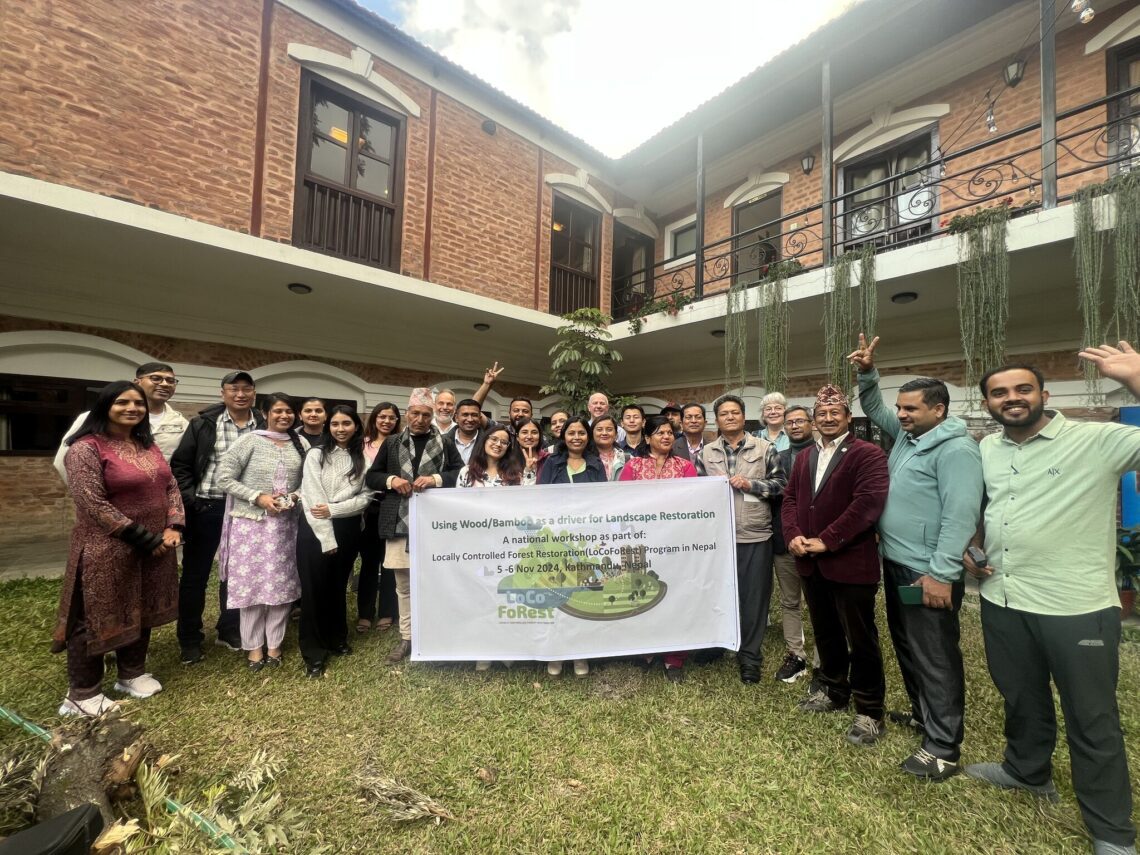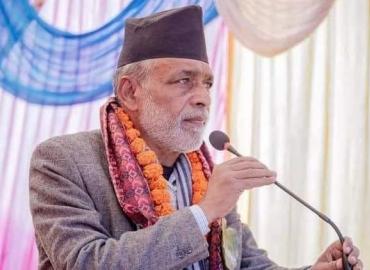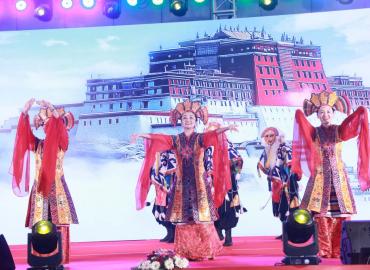Patan: Under the LoCoFoRest (Locally Controlled Forest Restoration) program, a two-day national workshop and a one-day field visit were successfully completed in Patan, Lalitpur, with the aim of promoting the use of wood and bamboo in forest restoration.
Organized by Nepali representatives from LoCoFoRest Course Round 4 (CR4), the workshop included in-depth discussions on the potential of using bamboo and wood as key resources for forest restoration, with an emphasis on community economic empowerment, biodiversity conservation, water security, and climate adaptation.
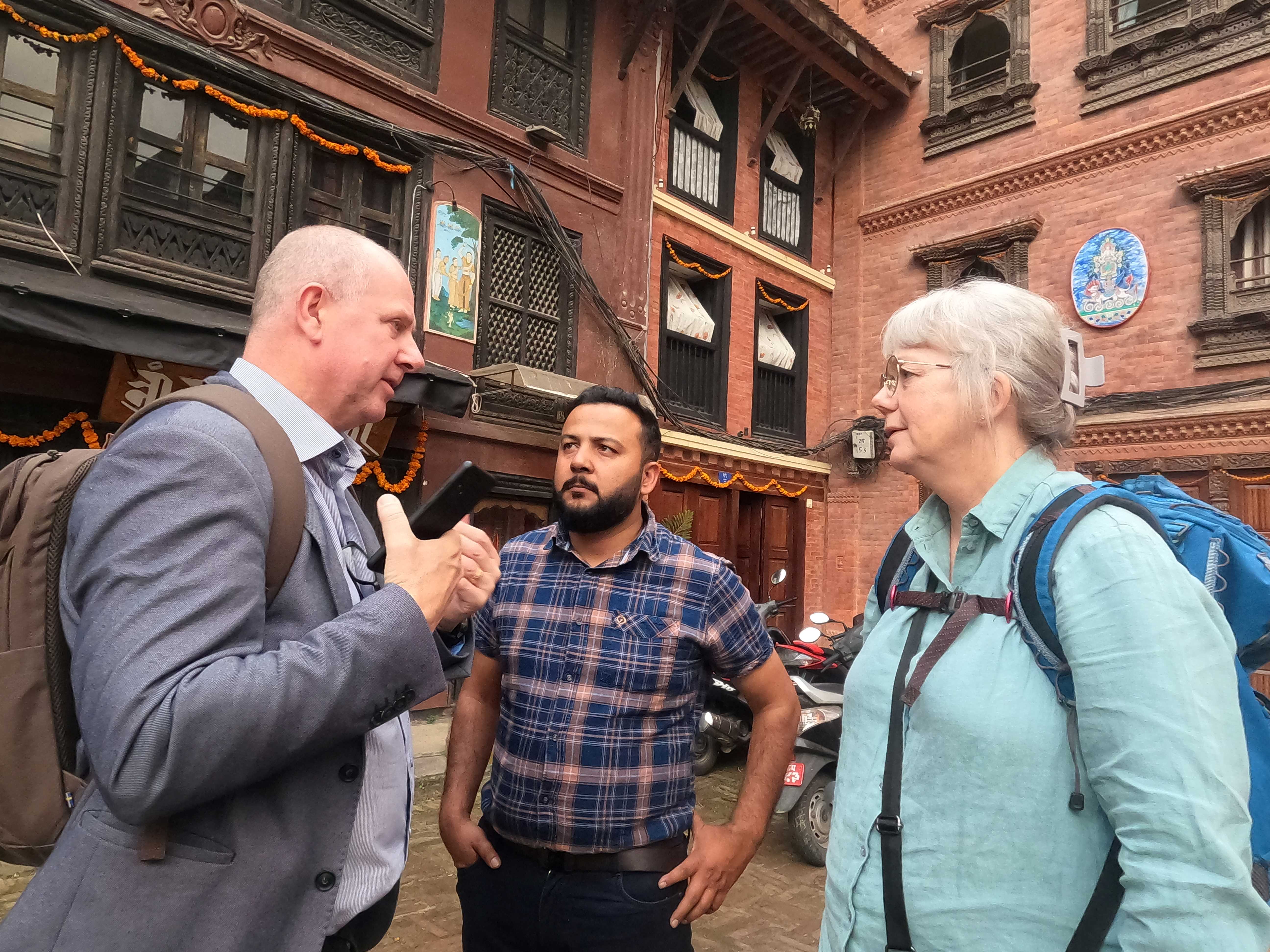
Participants observed traditional wooden houses in the Patan Durbar Square area, explored moso bamboo in Banepa (Kavrepalanchok district), pinus wallichiana in Bethanchok, and agroforestry at Hasera in Namobuddha, gaining valuable insights into local wood and bamboo usage.
The workshop featured a rigorous exchange of ideas between Swedish forest experts, local representatives, environmentalists, and forest conservationists on sustainable and scalable forest restoration principles. Participants discussed potential transformation projects for their respective countries and institutions, presenting detailed implementation plans. The primary focus was on exploring various possibilities for using bamboo and wood as core materials in forest restoration. Attendees also shared innovative ideas on the sustainable and effective use of these resources.
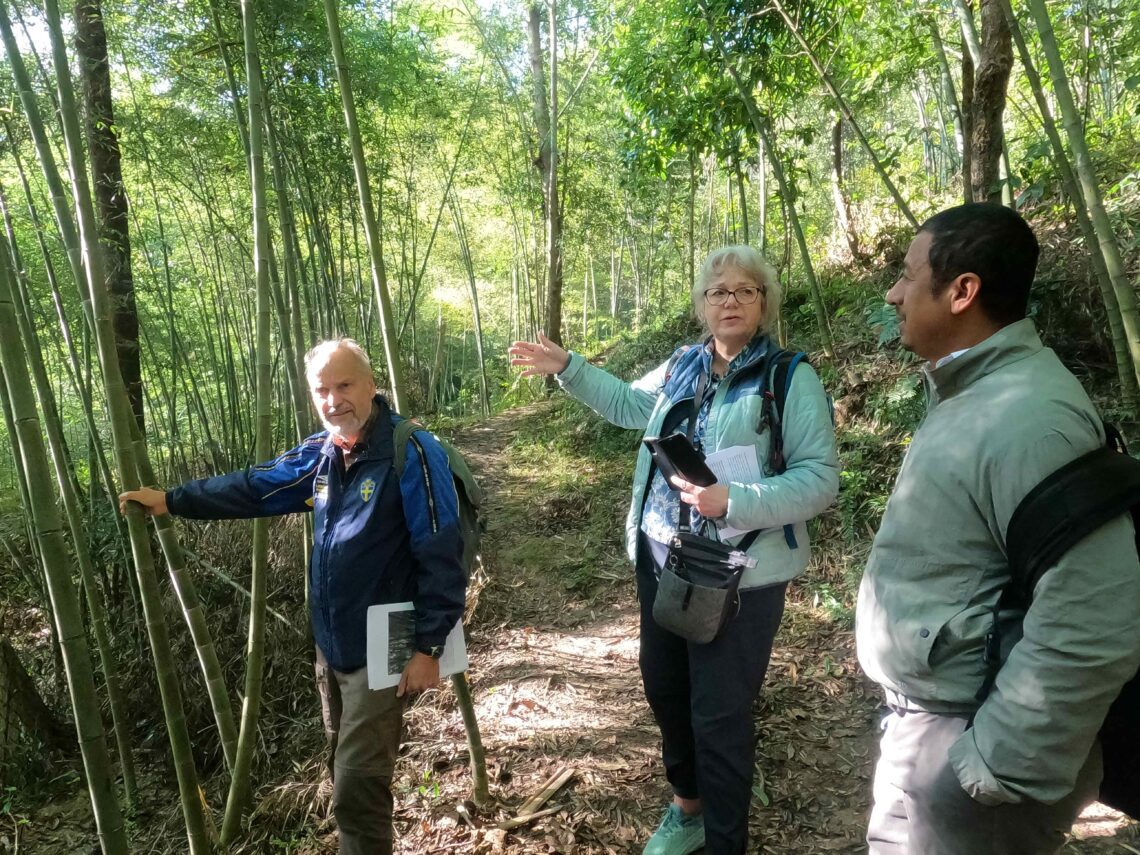
During the exchange of forest management experiences between Sweden and Nepal, the workshop inspired local communities to develop strategies for forest restoration, combining economic and environmental benefits by utilizing bamboo and wood effectively. Additionally, the workshop provided Nepali forestry and water stakeholders with a comprehensive understanding of the objectives of the LoCoFoRest program.
The main objectives of the workshop, as shared by the coordinator and Nepal representative of LoCoFoRest, Sujan Khanal, were to create economic opportunities at the local level, contribute to water and biodiversity conservation, and sustainably expand forest landscape restoration by considering the global demand for wood-based products.
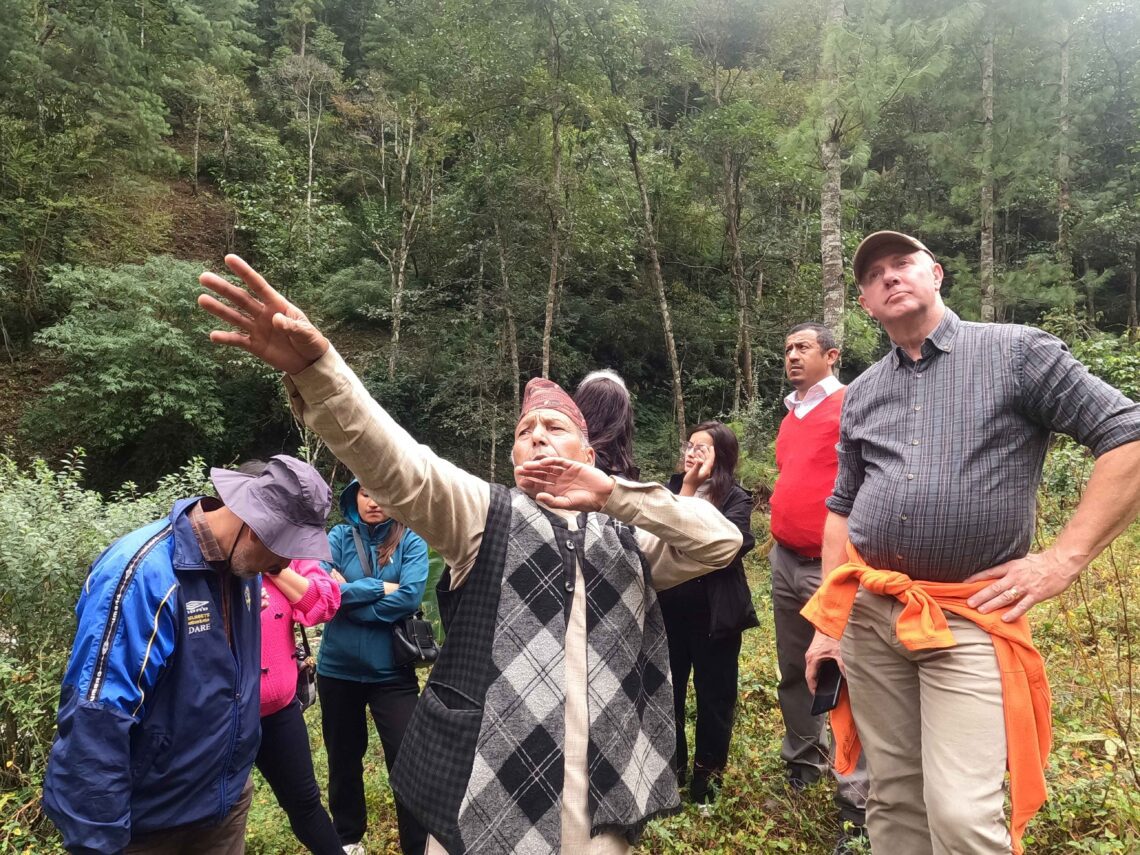
Khanal said, “The use of wood and bamboo can create opportunities for forest landscape restoration in Nepal, while providing long-term economic and environmental benefits for communities. This workshop, centered around local and international experience sharing, has concluded successfully.” According to him, this training will help bring significant and long-lasting changes to forest management in Nepal. He added, “The program will have a lasting impact on forest and water conservation in Nepal. With the potential for community economic empowerment through bamboo and wood utilization, we are optimistic about positive outcomes in the future.” Khanal is also a participant in LoCoFoRest Course Round 1 (CR1).
What is LoCoFoRest?
Funded by the Swedish government, the LoCoFoRest (Locally Controlled Forest Restoration) program has been promoting opportunities for environmental and economic benefits through sustainable forest restoration using forest resources like bamboo and wood.
LoCoFoRest is an International Training Program (ITP) funded by the Swedish International Development Cooperation Agency (Sida) and led by the Swedish Forest Agency, with Stockholm International Water Institute (SIWI) and the Eco-Innovation Foundation (EIF) as partners. The program aims to promote forest landscape restoration while ensuring the prosperity of local communities, with a particular focus on improving forest ecosystem services and prioritizing water and biodiversity conservation.
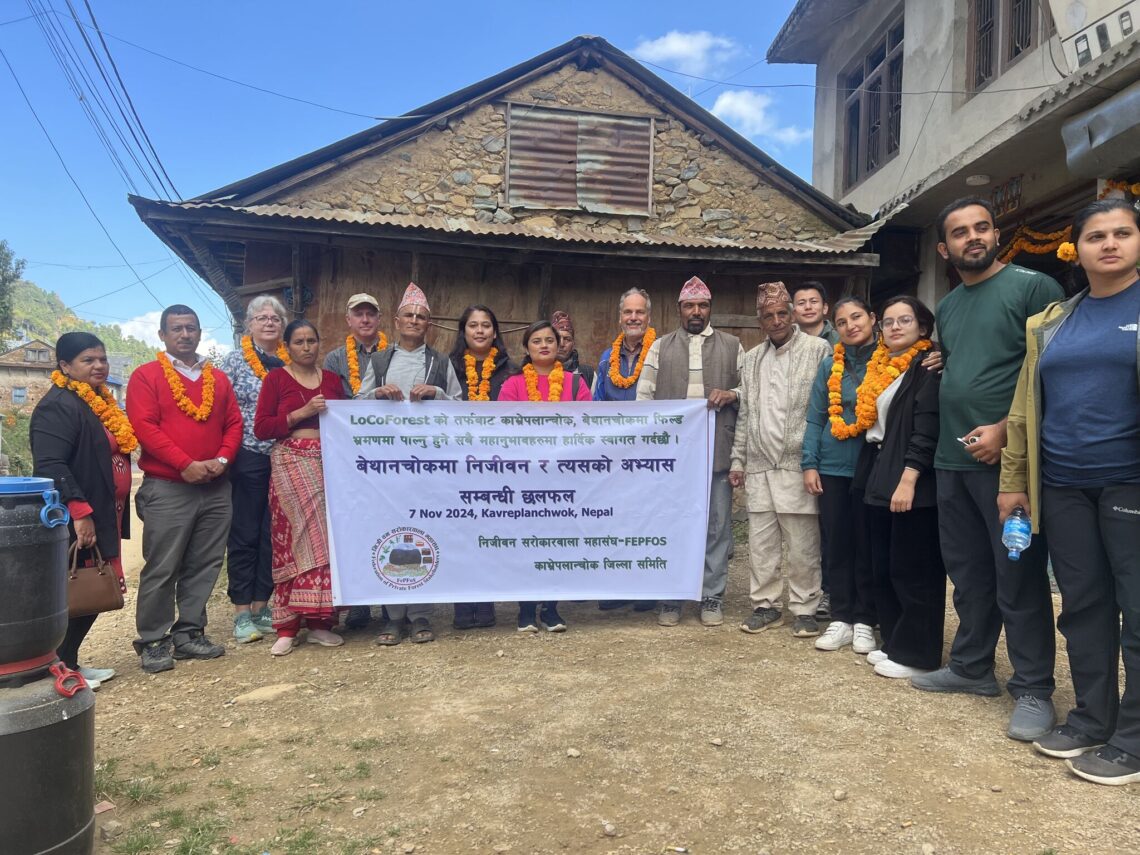
This five-year program, launched in 2021, includes regional representatives from Burkina Faso, the Democratic Republic of Congo, Ethiopia, Lao PDR, Nepal, Senegal, Thailand, Togo, and Vietnam. Seven annual courses are held throughout the project period, with five in English and two in French. Participants begin with an introductory web-based course in their respective countries, followed by an intensive two-week training in Sweden. The program encourages participants to develop and implement impactful change projects within their countries and organizations.
At the end of each course, each group organizes a local program in their country, with Nepali representatives from LoCoFoRest Course Round 4 (CR4) coordinating this year’s event in Nepal.

